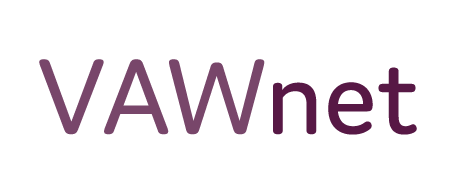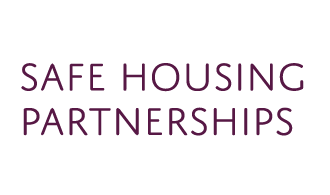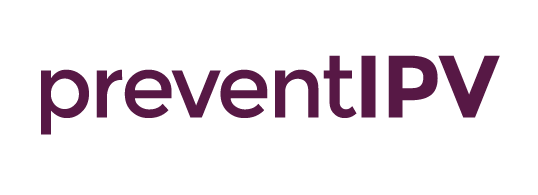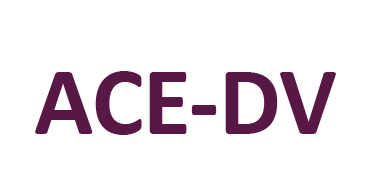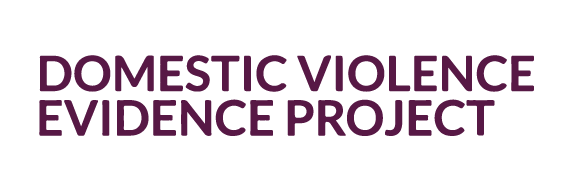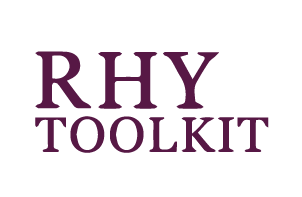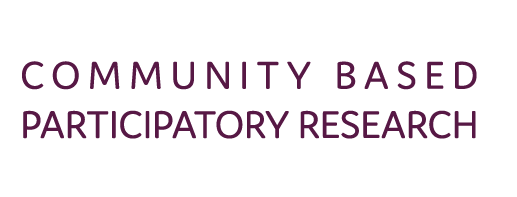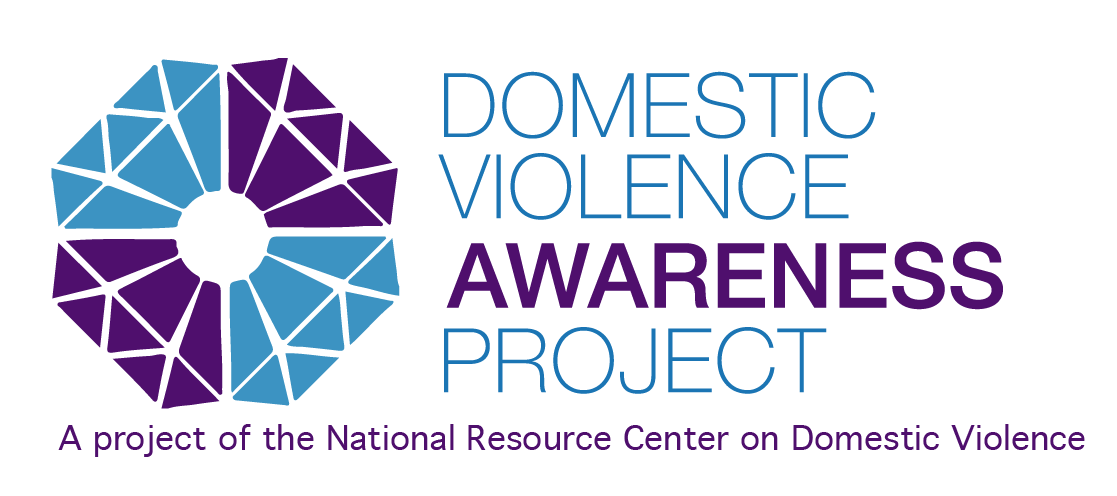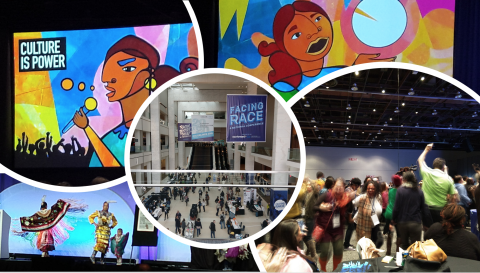
DECEMBER 2, 2018
5 Takeaways & Lessons Learned at Facing Race 2018
a National Conference by Race Forward & Center for Social Inclusion
by Justine Robillard, Creative Media Specialist for the National Resource Center on Domestic Violence
National Resource Center on Domestic Violence (NRCDV) is devoted to continual learning and education around racial justice as a core element of our gender and social justice work. We refer to this collective journey as our Racial Justice Initiative. For our organization, this means that our staff and board at all levels are dedicated to investing in racial equity and bringing it to the front and center of our work. This November, it also meant that several of my colleagues and I were able to attend the #FacingRace 2018 Conference.
As a first time attendee I was overwhelmed with the sense that we (our organization & our movement) are part of something much larger. You see, as anti-violence advocates, we speak of “intersectionality” and “bridging gaps” and working with “sister” movements. At this conference we had the privilege of seeing first-hand the intersectional approach Race Forward takes when addressing social justice inequities. We were able to experience the coming together of sister movements, embracing their unique values and perspectives in a way that enhanced and moved conversations forward.
Tarana Burke stated that sexual violence intersects with all justice work: prison abolishment, police reform, economic justice, community health, housing, and homelessness. “Sexual violence is a racial justice issue, economic justice issue, community health issue, police brutality issue, LGBTQ issue, human rights issue.”
In the closing plenary Is America Possible? Building a Multiracial Democracy in an Era of Division, panelists explored steps for moving forward and taking the energy, bold truths and raw facts from this conference to empower our lives and our movements in a realistic change-making way.
“Alignment; let’s be smart. Let’s have a strategy and work together across differences.” - Ash-Lee Woodard Henderson
What does this mean for advocates working in their respective movements?
We’ve highlighted just a few of the many take-aways from Facing Race that resonated with NRCDV team members who attended the conference.
-
Honor your ancestors & the space you are in.
-
Reimagine a World
-
The Power of Stories
-
Unjust, Not Unfortunate
-
Be Rigorous!
1. Honor your ancestors & the space you are in.
“We are the children of the ones who did not die;
We are the children of the people who can fly;
We are the children of the ones who persevered;
We are fearless, we are strong, and we’re ready to carry on.”
- Song led by Wendy Moore-O’Neal, Conference Weaver
Honoring the story of the space you are walking into, as well as the history and culture that you, yourself and your ancestors bring is exceedingly important. This serves not only to ground you in the culture and communities you are working with and for, but also to break down walls that you or others in the room may put up when entering a workspace. This is also an opportunity to acknowledge the history and voices of those who have come before you.
“Recognizing the power of Truth telling. We won't get to justice until we can actually tell the truth about our history” - Ash-Lee Woodard Henderson
So, what does this look like?
Race Forward was intentional about honoring the land we were on, those who walked it before us, and those who walk it today. They did so through community agreements, and showcasing the rich history of Detroit, especially its indigenous populations. They brought leaders such as Grace and Jimmy Boggs, the water warriors of Michigan’s water crisis, and labor rights activists to the forefront and made space for Detroit's leaders in arts and music.
2. Reimagine a World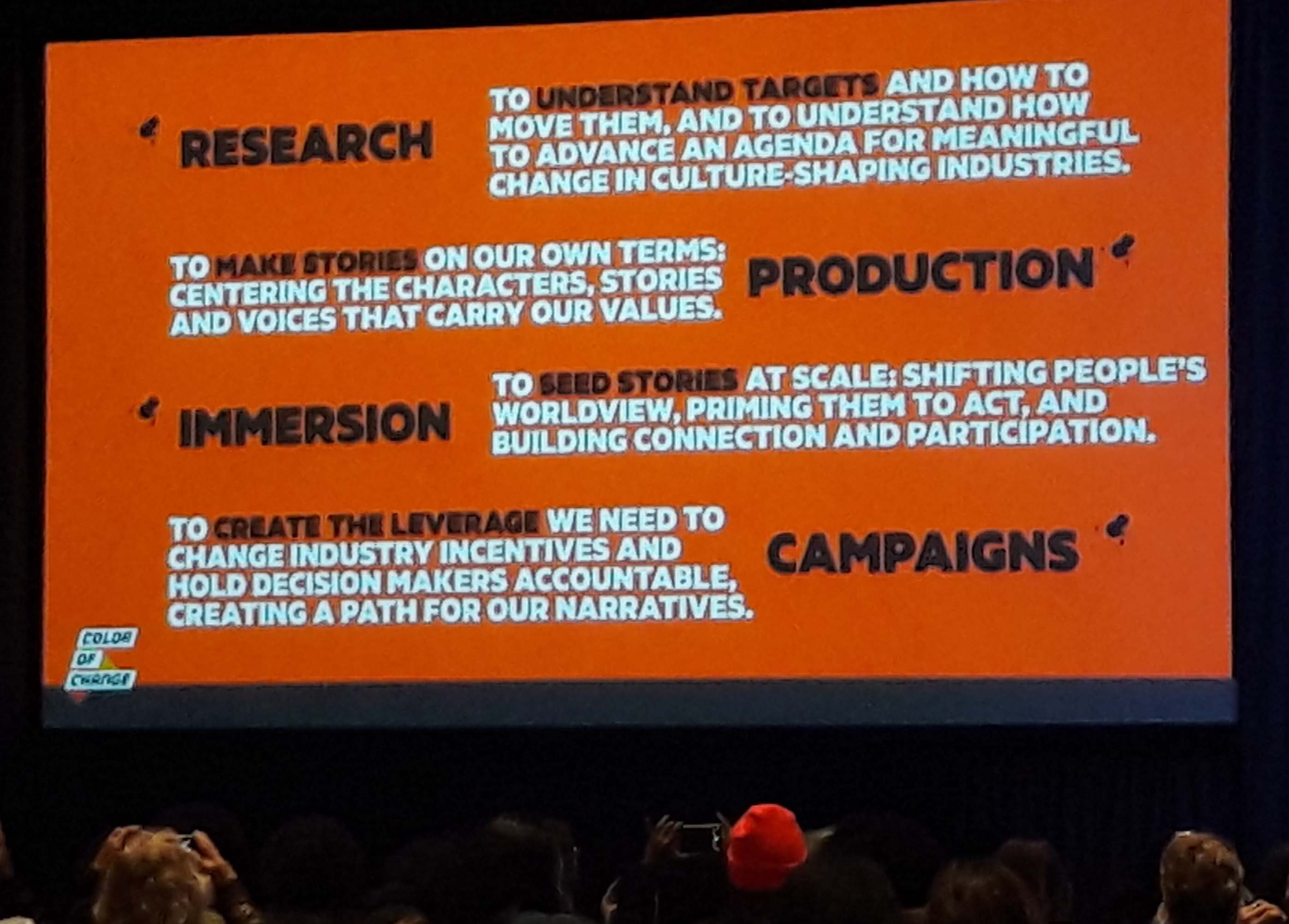
Throughout the conference many speakers challenged us to not only reimagine the world around us, but how you are going to be present. They challenged us to reimagine new systems, such as public goods and services; reimagine how we utilize our land and natural resources; reimagine how we value labor, and where we put our financial resources. Reimagine democracy. Reimagine your own body. What would your body be shaped like without oppression or exploitation? How would you look and how would you move? What would it look like if you shared this vision of yourself with the world? It was extremely challenging to envision ourselves and our systems in ways that are different from what we currently have, but it is this radical reimagining that has the ability to create major impactful change.
“Creating the condition for people to feel free to imagine a world with new possibilities.” - Bree Newsome
3. The Power of Stories
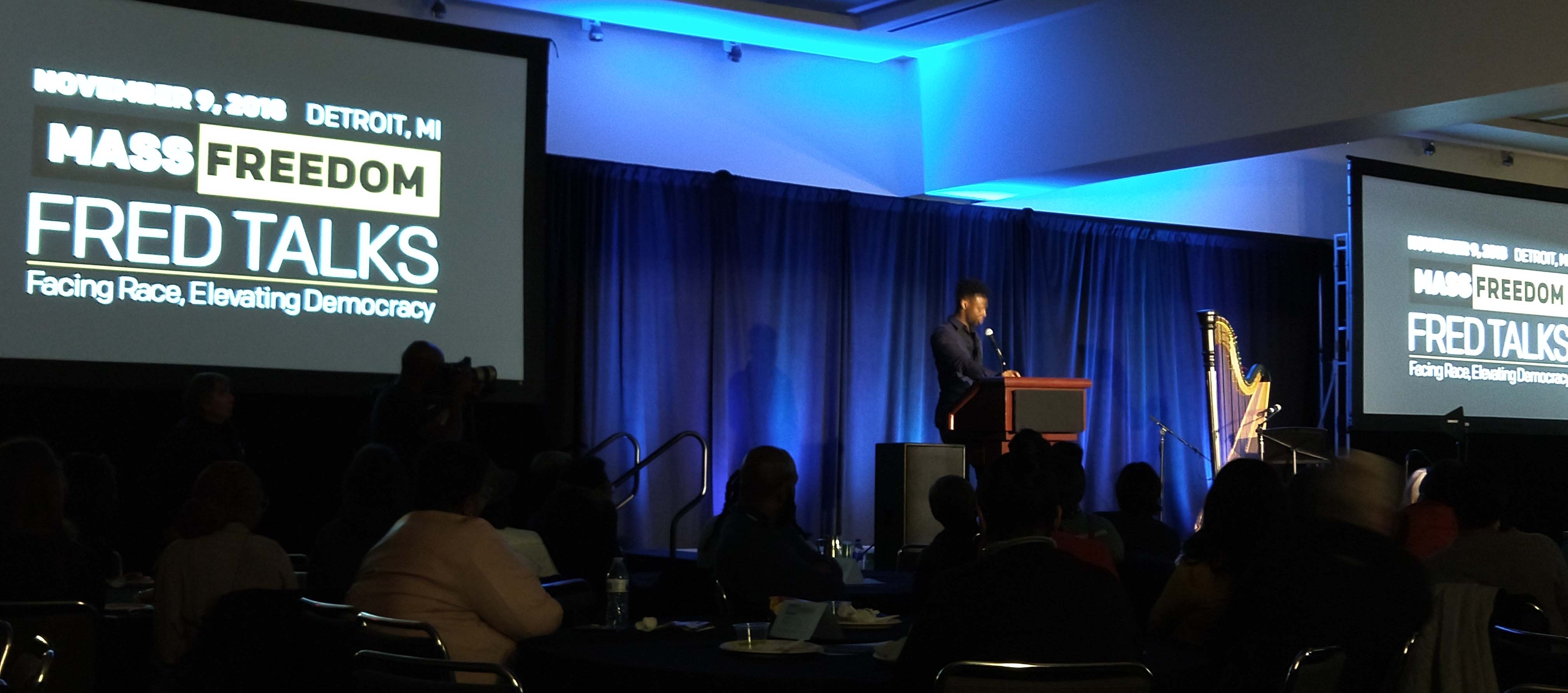 At Facing Race a few of us were able to attend FRED Talks (Facing Race, Elevating Democracy) featuring stories, strategies, and lived experiences of advocates and leaders from communities most impacted by societal oppressions. These stories remind us not only that our work is not yet done, but the importance of engaging with our sister movements, continual open dialoge, and the power of sharing our stories. Every story holds a different perspective or lens. It is through these perspectives that new lessons, barriers, and learning moments are revealed, and from which more comprehensive and innovative solutions can be found.
At Facing Race a few of us were able to attend FRED Talks (Facing Race, Elevating Democracy) featuring stories, strategies, and lived experiences of advocates and leaders from communities most impacted by societal oppressions. These stories remind us not only that our work is not yet done, but the importance of engaging with our sister movements, continual open dialoge, and the power of sharing our stories. Every story holds a different perspective or lens. It is through these perspectives that new lessons, barriers, and learning moments are revealed, and from which more comprehensive and innovative solutions can be found.
Let me put it another way. Say we’re playing “Escape the [social inequity] Room.” Every story holds a different perspective and each perspective holds a different key. If we do not share, listen, learn and respect the stories of our siblings fighting for justice, we are aimlessly trying to “escape the room” without access to all the keys to open the locks.
4. Unjust, Not Unfortunate
“When we leave people at unfortunate, not at unjust, we aren't addressing the systems of oppression. We aren't holding institutions accountable or pushing them to do better. We aren't pushing for real change.” – Adrienne Maree Brown
As advocates, we fight injustice daily. The injustices we face have become so normalized by society that systemic oppression is often labeled as merely ”unfortunate.”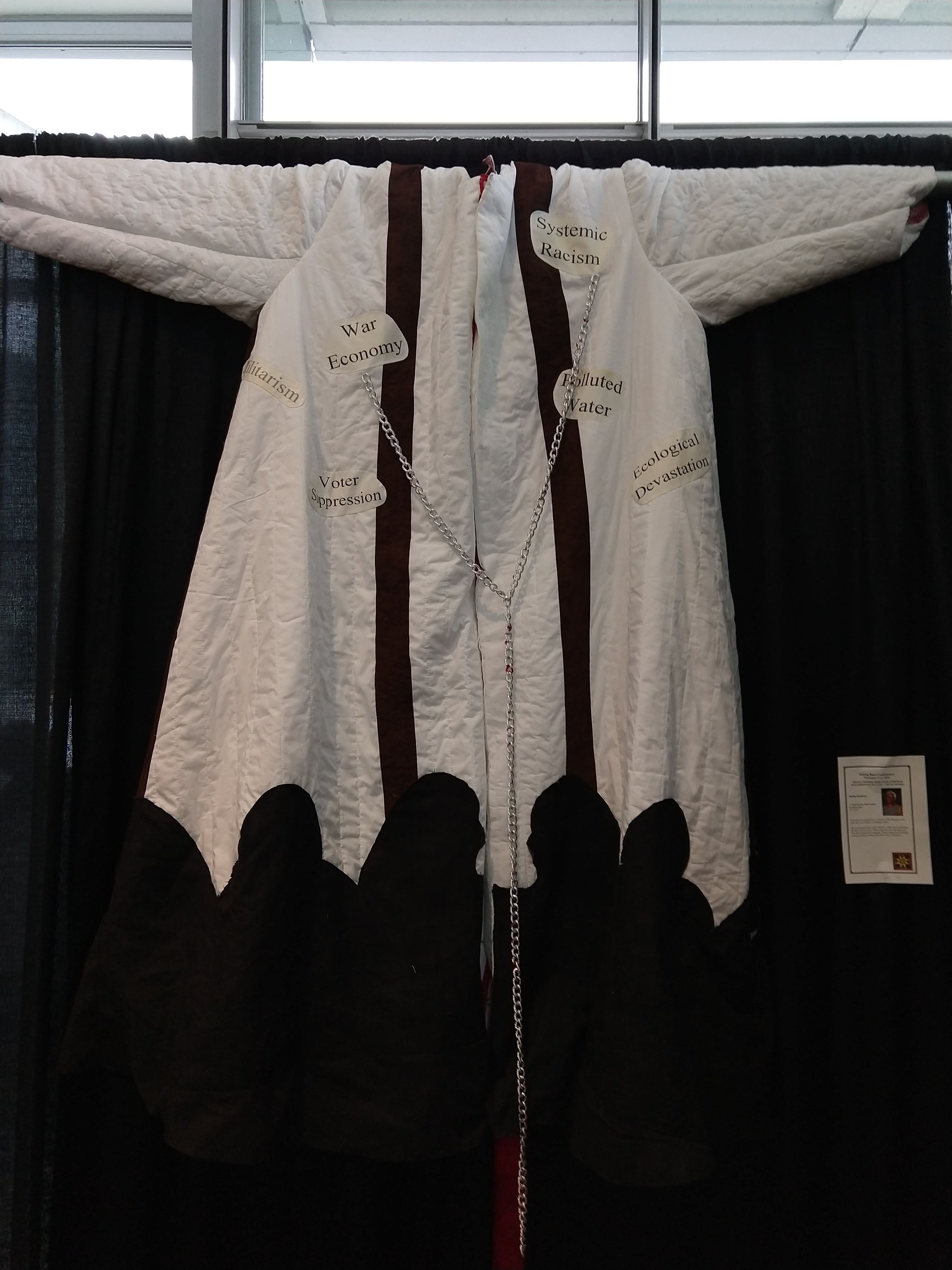
Adrienne Maree Brown reminded us that when we label struggles caused by poverty, racism, and homophobia as unfortunate, and not unjust, we are removing ourselves from the humanity of these situations. If a situation is unfortunate, like a scrape or cut, we address it with Band-Aid solutions, because unfortunate problems may heal or resolve themselves in time. We need to be bold and acknowledge when things are more than just unfortunate. It’s unjust to listen to lived experiences and not offer a path to healing and change.
Justice requires movement; it requires systemic change; it requires acknowledgement; and it requires more than a Band-Aid. An unjust situation may require stitches, surgery, the setting of bones, or even the re-breaking of bones to then be set right. Justice is messy and hard it requires real change.
5. Be Rigorous!
Ash-Lee Woodard Henderson reminds us to "Study. Be disciplined and rigorous in what's happening now and what has happened in history. Do work. And evaluate and grow as you continue to work.”
Advocacy is hard and sometimes draining, and self-care is important, but we cannot stop! We must be rigorous in our study and learning and rigorous in the inclusion of others and their unique perspectives, because they are valuable not because they are a statistic. We must be rigorous in uncovering and acknowledging the hidden histories of our nation and oppressed peoples, and rigorous in developing our own work and growth. We must be rigorous in evaluating our progress, learning from our failures and continuing to get back up, and rigorous in helping one another get back up and into the race.
“Let’s roll together. Solidarity is a practice. You have to do it… There are opportunities to build solidarity in our shared fate. If you come for one of us, you come for all of us… We need revolutionary strategies. Let’s use our visionary muscles.” - Ash-Lee Woodard Henderson
These takeaways by no means reflect all the wisdom we gathered in this space. With well over 100 workshops, not including plenaries, planned Race Flicks, Racial Justice Reads, and social events, this conference was packed full of learning for everyone at every level of racial justice work. Check out our December TAQ (Technical Assistance Question of the Month) on VAWnet, where Ivonne Ortiz speaks to her experience attending the Race Forward conference as a woman of color and addresses the question “As a woman of color; how can I find my place in the domestic violence movement?”
Learn more about how you can put these awesome ideas into practice! Some ideas to get you started:
-
PreventIPV, Tools for Social Change: https://preventipv.org/
-
MEV’s Resource Library: https://www.movetoendviolence.org/resources/
-
Race Forward’s research https://www.raceforward.org/research
-
Race Forward’s news outlet, Colorlines: https://www.colorlines.com/
-
December TAQ: We exist! As a woman of color; how can I find my place in the domestic violence movement?
